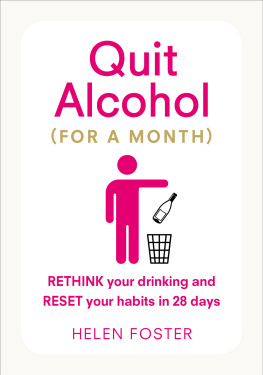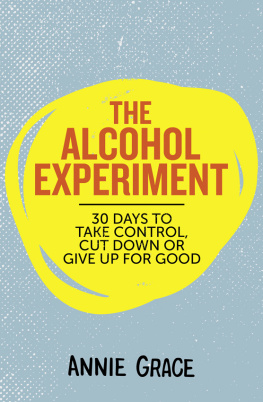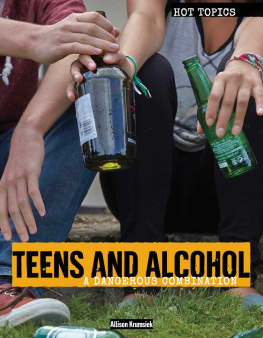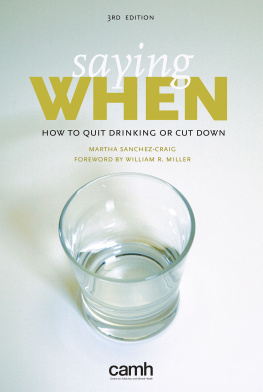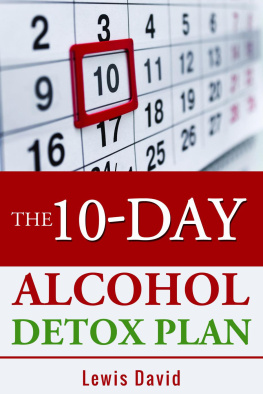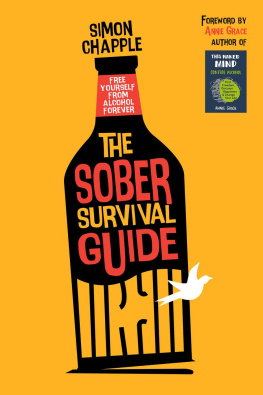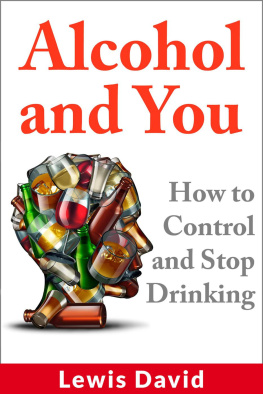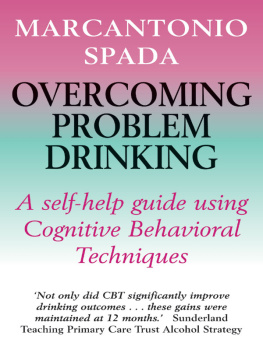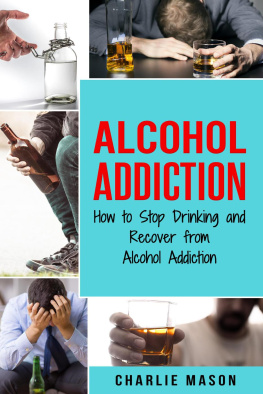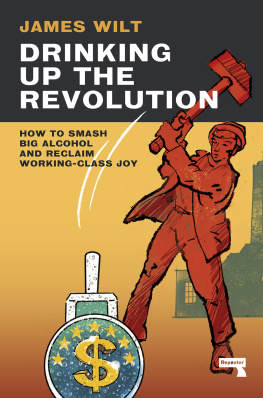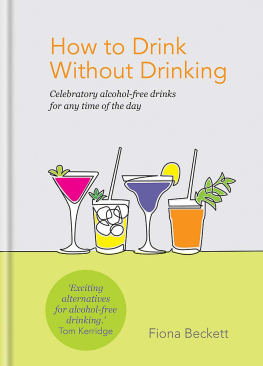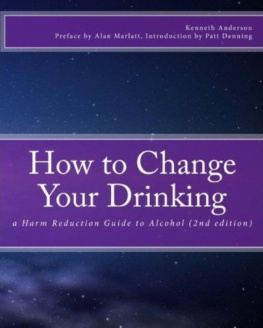Helen Foster - Drinking Dry: How to quit alcohol for a month or more
Here you can read online Helen Foster - Drinking Dry: How to quit alcohol for a month or more full text of the book (entire story) in english for free. Download pdf and epub, get meaning, cover and reviews about this ebook. year: 2016, publisher: Ebury Digital, genre: Home and family. Description of the work, (preface) as well as reviews are available. Best literature library LitArk.com created for fans of good reading and offers a wide selection of genres:
Romance novel
Science fiction
Adventure
Detective
Science
History
Home and family
Prose
Art
Politics
Computer
Non-fiction
Religion
Business
Children
Humor
Choose a favorite category and find really read worthwhile books. Enjoy immersion in the world of imagination, feel the emotions of the characters or learn something new for yourself, make an fascinating discovery.
- Book:Drinking Dry: How to quit alcohol for a month or more
- Author:
- Publisher:Ebury Digital
- Genre:
- Year:2016
- Rating:4 / 5
- Favourites:Add to favourites
- Your mark:
- 80
- 1
- 2
- 3
- 4
- 5
Drinking Dry: How to quit alcohol for a month or more: summary, description and annotation
We offer to read an annotation, description, summary or preface (depends on what the author of the book "Drinking Dry: How to quit alcohol for a month or more" wrote himself). If you haven't found the necessary information about the book — write in the comments, we will try to find it.
Helen Foster: author's other books
Who wrote Drinking Dry: How to quit alcohol for a month or more? Find out the surname, the name of the author of the book and a list of all author's works by series.
Drinking Dry: How to quit alcohol for a month or more — read online for free the complete book (whole text) full work
Below is the text of the book, divided by pages. System saving the place of the last page read, allows you to conveniently read the book "Drinking Dry: How to quit alcohol for a month or more" online for free, without having to search again every time where you left off. Put a bookmark, and you can go to the page where you finished reading at any time.
Font size:
Interval:
Bookmark:

If you find yourself trying to give up alcohol for Dry January, Dryathlon or Stoptober or youre plain old giving up the booze for Lent then good luck and more power to you! But how do you actually give up drinking for more than a few days without falling off the wagon?
Quit Alcohol (for a month) will show you the ropes and keep you on the straight and narrow without making your month seem like a year. Includes:
- 28-day plan of healthy recipes to keep your cravings at bay
- Alcohol-free drink ideas so your social life doesnt suffer
- Advice on how to keep your willpower topped up instead of your glass
- All you need to maximise your month off and reap the rewards not just for your body but your mind and soul!
Helen Foster is a leading health journalist and author whose award-winning writing has appeared in numerous newspapers and magazines, including Red, the Daily Mail, Glamour and Stylist.
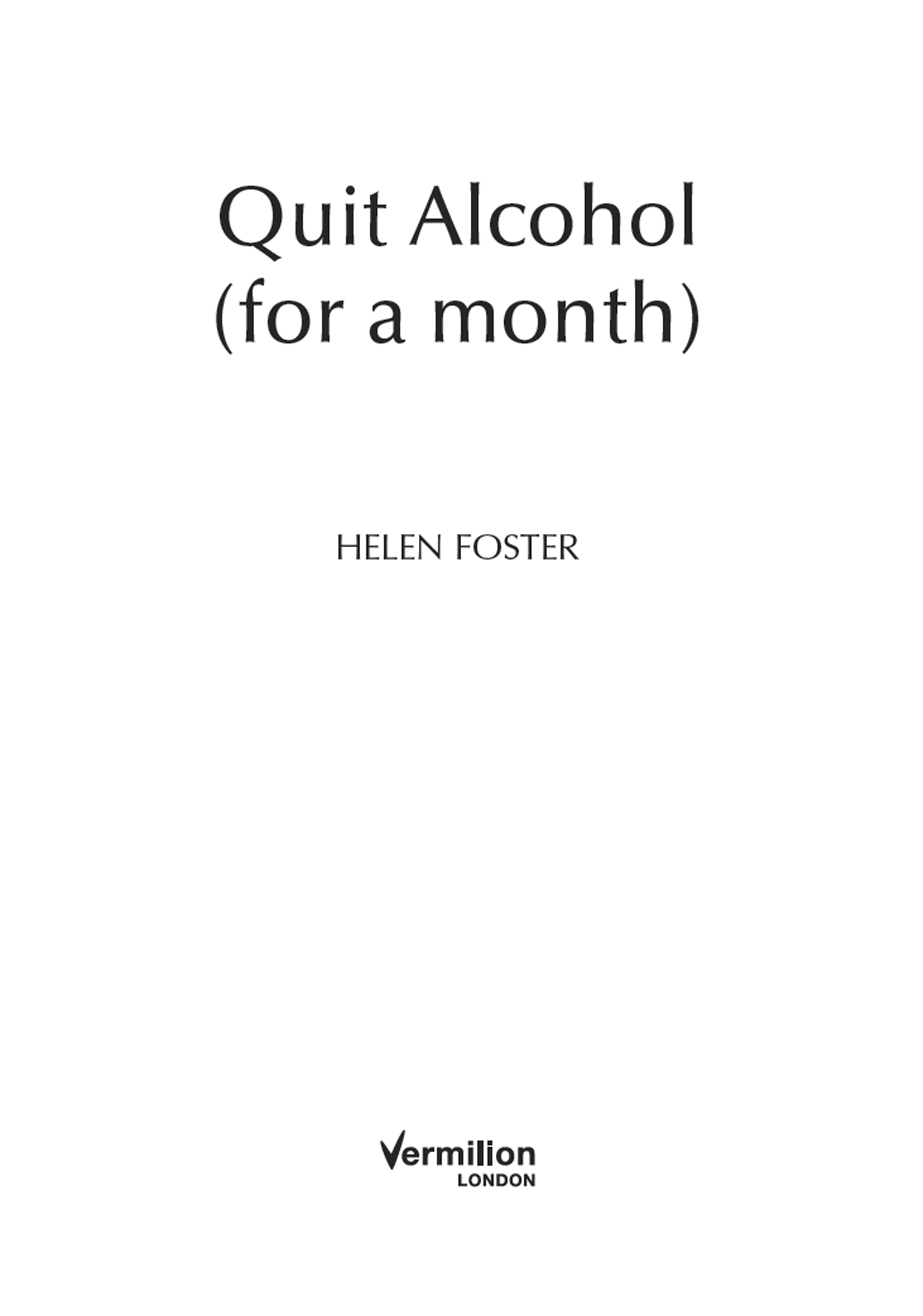
30 days hath September
April, June and November
All the rest have 31
Except for Dry January
Which has 5,782
(Tweet by @oconnola, 4th January 2016)
AT SOME POINT in the next 12 months a few million people in the UK and around the world will all pledge to do the same thing give up alcohol for the period of a month. Some will be doing it to raise money for charity, others want to improve their health or lose weight, some might even be doing it simply to test whether they can but pretty much everyone at some point during their month-long quest utters something along the lines of the phrase I could murder a drink. If that sounds like you, this is the book that aims to help stop you drinking it.
Technically, taking a month off should be easy alcohol isnt like air, food or water. Its not something we need to physically survive. In the majority of cases, we can pick or choose whether to consume it and, considering the miserable side effects that occur if you overdo it, giving it up for whats a tiny fraction of your life should be a breeze but often it isnt. We live in a very drinky culture here in the UK. Its almost expected of us to drink at work, at play, at celebrations and as a way to destress say you dont drink and people often look at you with vague suspicion. Going to the pub is a major British pastime we have over 50,000 around the country to choose from.
Quitting can be tricky. There are hurdles everywhere. Youve got to break a habit, youve got to use willpower, you may have to fight peer pressure, and you need to find something different to do on a Saturday night rather than simply wander down to the local. Go into a month of abstinence unprepared and you could have a pint in your hand before you can say Im not drinking right now, or spend the whole 30 days feeling grumpy, deprived and miserable. Plan for what youre going to do though and its far easier. Youll resist temptation, saying no will be a breeze, and youll end the month as clinging firmly to the wagon as you were when you started. The job of this book is to help you organise that plan and find the alcohol-free approach that works best for you. This combination will ensure your month off will onlyfeel like it lasts 5,782 days if you keep it going that long!
But what you can take from this book doesnt just stop at the end of the month; it also explores how to keep up a sensible relationship with alcohol over the long term as well. Nor does it cover only booze: youll also find advice on how to make other changes including eating more healthily, finding time (and enthusiasm) for exercise and losing weight. Some of these changes might follow on from benefits that start during your month off; others are things you might decide to tackle afterwards because youve developed a newfound confidence in your ability to make changes. You see, when it comes to change, success begets success. As you successfully make changes in your drinking habits, your self-belief in making other changes also increases by this time you next year you could be drinking sensibly, eating sensibly, saving cash and being stress-free (yes, youre holding a miracle cure in your hands right now!). But before we get to all of that though, lets just explore the idea of the alcohol-free month Where on earth did the idea come from?
As a concept its not new. There are reports from Finland in 1942 of an idea called Drip-Free January which asked people to abstain for the month as part of the war effort. Many people give up alcohol for Lent and Australias Ocsober, campaign which asks people to give up booze for 28 of the 31 days of October, was first launched in 2008. Its generally accepted that the first official campaigns in the UK were launched in January 2013 and for this, we mostly have to thank one woman.
Her name was Emily Robinson and in 2011 she decided to give up alcohol for the month of January to help the training she was doing to run a half marathon in the February. By January 2012, Emily was working for the charity Alcohol Concern and when she decided to repeat her month off, people got interested, some joined in and the charity realised this was actually a great idea to help people reassess their drinking habits. In May 2012, Alcohol Concern announced that January 2013 would be the first official Dry January in the UK. Over 4,350 people took part. One year, two campaigns, lots of non-existent hangovers and from this point on, the trend just grew and grew.
Fast forward to 2016 and figures from one YouGov survey found 16 per cent of people surveyed made some attempt to quit booze during January that year.
Its also now global. People in 94 different countries signed up to the UKs Dry January campaign in 2016, but local events are also rapidly springing up around the world. Australia now has three different months of the year when they encourage quitting for different causes, New Zealand has a Dry July, Canada officially launched Dry Feb in 2016 with 700 people taking part, while around 16 per cent of the population happily join in Finlands version of Dry January.
The idea of all these months is simple to give us a break from alcohol and hopefully help us reassess how much we drink. Alcohol consumption in many countries is a bit of a concern. Its been estimated that across the UK we drink almost 15,000 pints of beer and 14,000 glasses of wine every 60 seconds. At least seven different types of cancer are linked to alcohol intake and then therere all the accidents people have while under the influence. No wonder the experts would like us to take a bit of a break now and again.
Of course you can quit at any time start your own No-Booze-Vember or Alcohol-Free August, but therere some definite benefits of doing it as part of one of the organised campaigns, particularly now they are so popular. Quit during Dry January or Sober October and you wont be alone and people are less likely to be surprised when you order a soda water instead your normal tipple of choice. You might not even need to order water. Pubs and restaurants realise that millions of people are trying these campaigns and not all of them want to stay home and rearrange the furniture while they abstain so some are stepping up to the mark to join in. Come January particularly, mixologists at various bars get creative, adding special Mocktails to their menus. Pubs increase their orders of alcohol-free beers and magazines and newspapers run entire articles on all the different soft drinks you can consume instead of your nightly glass of wine. Fact is, its never been as cool to quit.
Font size:
Interval:
Bookmark:
Similar books «Drinking Dry: How to quit alcohol for a month or more»
Look at similar books to Drinking Dry: How to quit alcohol for a month or more. We have selected literature similar in name and meaning in the hope of providing readers with more options to find new, interesting, not yet read works.
Discussion, reviews of the book Drinking Dry: How to quit alcohol for a month or more and just readers' own opinions. Leave your comments, write what you think about the work, its meaning or the main characters. Specify what exactly you liked and what you didn't like, and why you think so.

